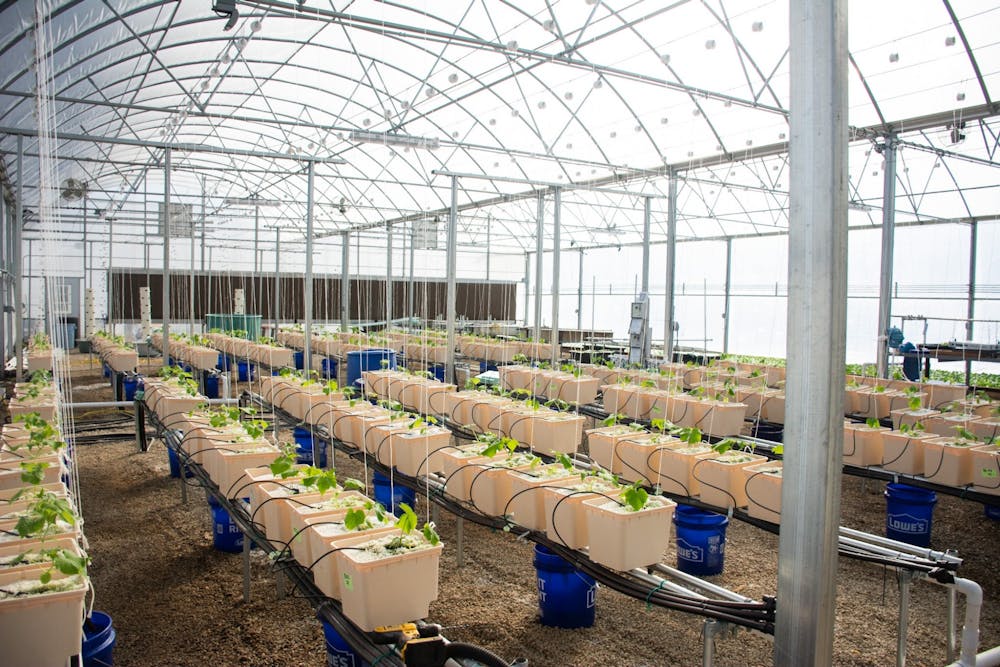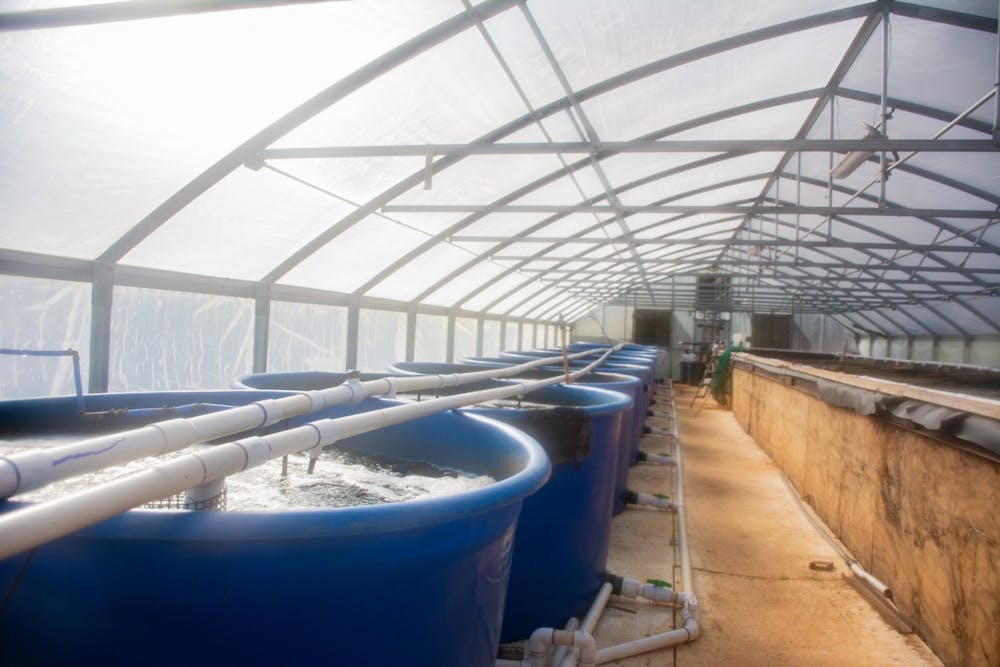As a result of rapid population growth, the United Nations has projected 10 billion mouths to feed worldwide by 2050. Food shortages and environmental impacts have led to the development of sustainable agriculture that seeks to counteract this eventual scarcity of resources.
One such method known as ‘aquaponics’ combines hydroponics and aquaculture technologies in order to create a minimal waste, semi-closed system that has limited impact on the environment.
Brendan Higgins, assistant professor of biosystems engineering, has worked with the University since fall 2016 and is a leading member of Auburn’s ongoing Aquaponics Project.
Higgins explained why sustainable agriculture systems are increasingly necessary for the future of food production.
“We as a society need to rapidly develop more efficient and sustainable production approaches that simultaneously sustain high yields while minimizing environmental impacts,” Higgins said. “Aquaponics does this by re-using waste from aquaculture to grow vegetables using hydroponic technology.”
Existing food production practices have destructive environmental impacts and are not sustainable in the long term, Higgins said.
Higgins supervises Auburn’s biofloc system, which is effective for cultivating certain fish. However, he said it also has some limitations.
“[Biofloc systems] work great for species like tilapia—which is what we currently grow—however, they are not great for all species of fish,” Higgins said.
In order to produce a more diverse range of fish, Higgins said he advocated for implementing additional types of production systems that will allow this to happen.
“We want to have the option to produce more types of fish and having both biofloc and so-called ‘clearwater’ systems is advantageous," he said. "Moreover, it lets us make comparisons across system types in cases where we can grow the same organism in both systems.”
The recent fundraising effort during Tiger Giving Day helped the Auburn Aquaponics facility raise $11,225 toward a new tank system able to sustain a more extensive selection of fish including tilapia, bass and saltwater species like shrimp.
These new tanks will also be equipped with real-time monitoring technologies that can compile performance data into a single application.
“We are highly appreciative of the donor community and what they are allowing us to do,” Higgins said.

Auburn University's aquaponics facility combines hydroponics and aquaculture technologies to create a minimal waste, semi-closed system with limited environmental impact.
Auburn Aquaponics has partnered with Tiger Dining, which means that fish and vegetables grown at the facility are distributed to various dining locations across campus making it a ‘farm-to-table’ dynamic.
Higgins explained the importance of investing in sustainable infrastructure such as this.
“We use our aquaponics system to train students and farmers, conduct research on new production practices, and provide food to Tiger Dining,” Higgins said. “It is rare to see research facilities that contribute to so many facets of Auburn University’s mission and to life on campus.”
In addition to the recent Tiger Giving Day initiative, the Auburn Aquaponics Project has also created a fund for student workers at the facility called the ‘Fund for Excellence in Aquaponics.’ Individuals can donate to this fund year-round, and in doing so, directly support these student workers who make aquaponics possible.
Do you like this story? The Plainsman doesn't accept money from tuition or student fees, and we don't charge a subscription fee. But you can donate to support The Plainsman.

Nicole Lee, junior in English, is a campus writer for The Auburn Plainsman.





